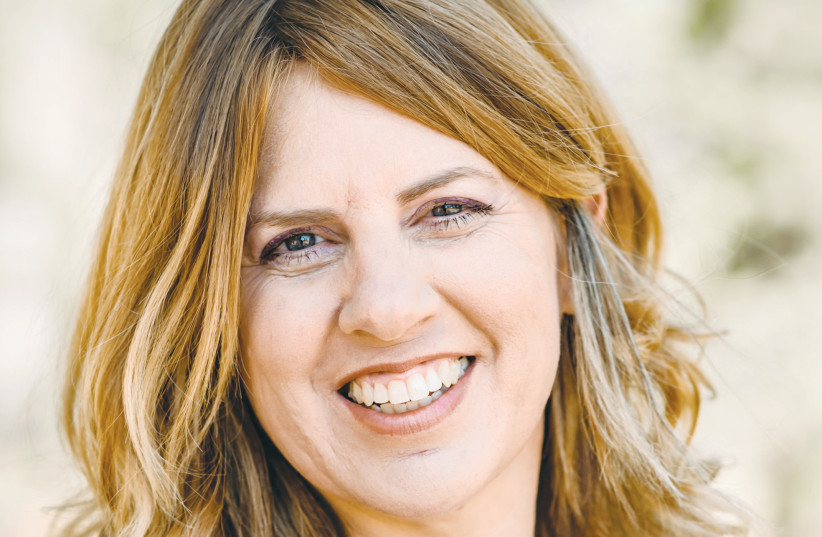This week, Israel’s Education Minister Yifat Shasha-Biton announced a comprehensive reform of bagrut (matriculation) exams. High school students will be required to pass only five matriculation examinations, in mathematics, English, Hebrew language, and two subjects of their choice. All other subjects will be assessed internally.
I believe that this proposed reform stems from a misunderstanding of the reality in our high schools. Students are not sufficiently skilled, there are insufficient teachers to make it work and this major reform will lead to a widening of the existing gaps in Israeli society.
Without coordinating with the teachers’ unions and an experimental pilot program, the proposal clearly ignores the failure of the alternative assessment experiment. Instead, the Education Ministry has decided to extend that reform and apply it to all the humanities subjects, starting from next year.
The core idea, to convert matriculation exams in the humanities into writing an interdisciplinary seminar paper, is completely detached from reality. It ignores current students’ abilities and the capacities of their teachers, as well as classroom size (Israel’s classes are among the largest size in the developed world), the continuing erosion of the status of humanities subjects and the time needed to implement reforms.
Just last week, after the winter matriculation examination in history, many teachers complained that the new exam, which requires not only extensive memorization, but analysis and depth of understanding, was either difficult or impossible for their students. Israeli students typically score low grades in the Program for International Student Assessment (PISA) tests, and many of them are unable to cope with reading and writing a simple text.

How, then, can we suddenly require them to write an interdisciplinary seminar paper on a high academic level? Writing a theoretical paper requires many different skills and students will need expert help from teachers. The reformers do not appear to understand the investment of manpower, resources and skills that will be required.
Facing such an unrealistic requirement, students will surrender their independence and turn to others for help. Some will be helped by their parents – those who are able to do so – and others will pay a private tutor or buy a paper online. This will not only create a false impression of the students’ abilities, but it will also widen the gaps in Israeli society between stronger and weaker families.
Our teachers, worn out by two years of the COVID-19 pandemic and exhausted by the frequent reforms imposed on them, now have to deal with another reformer education minister and her desire to make her mark. As soon as one new reform has been internalized by our schools, another reform comes along to shake things up again.
The education system has demarcated the important matriculation subjects, which will be examined externally, and the other subjects, which will be assessed internally within schools. Teachers are already concerned that principals will allocate additional hours to the externally-assessed subjects at the expense of the humanities.
Prof. Simcha Goldin, chairman of the History Profession Committee, points out that history teaching hours in Israel have been cut in half over the past 25 years. Today’s students lack the most basic understanding of their history. How can they be expected to analyze concepts without this elementary knowledge?
The cut in teaching hours has other far-reaching implications. For example, a history teacher who teaches each class for two hours a week now needs to teach ten classes in order to earn their salary. Each class has more than 35 students. It is unrealistic to expect a single teacher to assist dozens or even hundreds of students with their work.
Writing a theoretical paper requires multiple skills. Even the most talented students will need close guidance throughout the writing process. The Education Ministry does not seem to understand the investment of manpower, resources and skills that is required for a high school student to produce an analytical seminar paper at a reasonable academic level. It is hard to imagine that they intend to invest the necessary resources.
On the contrary, instead of overtime, we expect cutbacks. Teachers will not agree to work extra hours if they will no longer receive the additional matriculation allowance for subjects that are not examined externally.
Furthermore, which subject teachers will be expected to supervise the writing of interdisciplinary seminar papers? Who has been trained for this? Will two teachers from two subjects be assigned to teach each class? Or will teachers have to teach subjects that they are not familiar with?
Not only is the current teacher training system built along disciplinary lines, but the teaching colleges are about to implement a new teacher training system in which the requirement for teachers to take a course in language and expression has been abolished.
According to the Ministry announcement, the papers that replace the matriculation examinations will be marked by external examiners. In recent years, school inspectors have been trying to recruit academics who would be willing to review and evaluate high school students’ research papers. Few academics are interested or able to spare the time for this, so how will they find examiners for tens of thousands of student papers?
Behind this reform in student assessment is a clear failure to assess reality.
Dr. Michal Shaul is the head of the History Department at Herzog College, one of Israel’s leading teacher training colleges.
